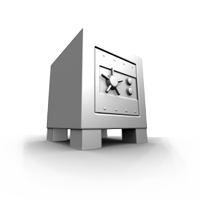Data Security
Perhaps one of the most challenging areas for businesses today is data security. There are nearly 1 billion Internet users worldwide. And, as with any population, there is a certain percentage of the users who are up to no good. The people who look to steal your company’s data are sophisticated and relentless. They seek customer information for identify theft, company secrets for extortion or sale to competitors, or they look to see what harm they can cause just for fun. There are no “full-proof” solutions, but there are a number of things you can do to greatly reduce the chances that your data will fall into the wrong hands.
Wireless SecurityThinking of going wireless? Wireless networks can be great for the business and the home. They allow you to use your laptop poolside or from the company lunchroom. Wireless really gives you freedom and many added networking options. However, as with any other network, failure to properly secure and configure your wireless network can result in a number of negative downsides. If your wireless network is unsecured, your data is open for everyone to see. If you just plugged in your wireless router and began using it, your wireless connection is most-likely not secured. If your connection is not secured, anyone passing by can jump on your Internet service, and in many cases, can directly access your computer and other resources. CDP will show you how to properly secure your wireless network, encrypting your signal, so you can operate wirelessly, but safely and privately as well.
Network Configuration & SecurityNothing can be more devastating to a business these days than losing the personal information of your clients to an illicit attack. New laws to protect consumers have put companies on the hot seat when it comes to data security. A single publicized incident could have disastrous effects on your business future. Whether it is your home or your Fortune 500 Company, you need to secure your network. If your firewalls are not up and properly configured, you are susceptible to an attack. If your server is not properly configured, someone is going to get to your information. CDP will work with you to ensure the appropriate steps are taken to configure your firewalls and server administrator settings, so that the risks of attack are minimized.
Desktop SecuritySecuring individual machines on your network and behind your firewalls is just as important as securing the network itself. Each computer should have antivirus and antispyware software that is regularly updated and runs regular scans to identify and eliminate harmful software picked up through Internet, chat, and e-mail use. Additionally, your computer should be password-protected as an added layer of protection to help prevent unauthorized access by someone in your location, or by someone accessing your location remotely.
User PoliciesNothing you do from the list of protections above will mean a thing without good user policies as well. When people think of hackers they often think of the Hollywood portrayal of someone sitting behind a computer frantically pounding keys on a keyboard and breaking into a system within seconds. However, the truth of the matter is that almost all hacking begins with social engineering, meaning, that someone has tricked someone into giving them a username and password which gives them a point of access to your network. User policies should include periodic password changes, policies on protecting usernames and passwords from outsiders, and other policies that prevent unnecessary exposure. Call Us Today For A FREE Consultation!
480-299-3111
|
||


